Mount Holyoke Alumnae Make Meaningful Contributions Behind the Scenes
Emily Dickinson, Virginia Apgar, Wendy Wasserstein, and Frances Perkins are just a few of the celebrated Mount Holyoke alumnae who have made their mark on the world and continue to be remembered for their contributions.
But among the nearly 60,000 alumnae of Mount Holyoke College over the past 180 years, there are countless other talented and successful people who have thrived beyond the gates without public knowledge or acclaim.
A production stage manager literally works backstage to ensure a successful show. Similarly, a speechwriter, air traffic controller, voice actor, and virtual assistant carry out their roles largely behind the scenes. All are essential to the people and the industries they serve, and rarely are they publicly acknowledged.
Here we take a look at five alumnae who are excelling in and making meaningful contributions to their chosen professions. All are remarkable and valued. All are Mount Holyoke educated.
Finding Her Voice
Several years ago, Ann Lyles MacPhail ’91 found herself with a demanding career in general dentistry, two lively children at home, and a classic work-life balance issue. When a friend mentioned taking a voice acting class, MacPhail’s curiosity was piqued. “I’ve long enjoyed theatre as a hobby, I participated in speech and debate in high school, and I lectured frequently as an assistant professor of dentistry at the University of Southern California,” she says. “I love talking, and I thought, ‘If someone could pay me to talk, that would be the best!’” So MacPhail signed up for the class, and by the end of ninety minutes, she knew she had found her niche. “Something clicked,” she says simply.
Today, MacPhail runs Voiceovers by Ann, an Arlington, Virginia-based business through which she provides voice talent—sophisticated, sexy, friendly, or professional—for everything from commercials and voice mail messages to documentaries and video games.
A unique mix of interests and aptitudes has brought MacPhail to this point. In addition to experience with acting and public speaking, she also knows her way around the technical side of the business—she and her husband are musicians, with a recording studio in their home. Her background in music, coupled with a double major in English and politics, teaching experience, voice acting classes, and, she says, “practice, practice, practice,” put her on the path to success.
I’m very lucky. I’ve found a career that uses my different skills and experiences and feeds my interests in performing and recording.Ann Lyles MacPhail ’91
“Being a good voice actor is a lot harder than people think—a good voice is only five percent of the challenge,” she says. “You also need acting skills, a musical ear, and the ability to interpret a script in the appropriate way. The voice you use when you’re selling an alarm system is different than the one you use when you’re narrating a documentary. I enjoy being able to do something that not everyone can do.”
MacPhail also delights in the ability to act in virtual anonymity. “As a voice actor, I can perform and still maintain my privacy,” she says. People do recognize her voice occasionally, she says, but not enough for her to feel put on the spot. “Every so often, someone will say, ‘Hey, didn’t I just hear you on the radio?’ and that’s fun,” she says. “I’m very lucky. I’ve found a career that uses my different skills and experiences and feeds my interests in performing and recording.”
Serving through Writing
As speechwriter for United States Army Four-Star General Robert B. Abrams, Meredith Herbolsheimer Hart ’01 serves her country proudly while also maintaining her anonymity. Having assisted politicians and some of the military’s top influencers with their messaging, Hart has come to realize that actively participating in public life without sacrificing one’s privacy is a luxury. “When I was in my twenties, I thought that I would run for office someday,” she says, “but after working for several high-profile bosses, I’ve discovered that their time is not their own. As a speechwriter, I can be a public servant and contribute to the conversation, but at the end of the day, I can also go home and have a life.”
In her current role, Hart crafts an average of four speeches per month, creates multiple event-specific talking points for “key leader engagements,” and prepares slides and charts for lectures the general is called upon to give. Her job is fast-paced and high stakes, and she couldn’t be happier. “I’m a very inquisitive person—I ask ‘why’ a lot—and I thrive under pressure,” says Hart. “I’m motivated by the high expectations inherent in my job, and I like contributing where the need is.”
Hart has had years of experience to prepare for this role. After graduating with a degree in English, she moved to Washington, DC, and took a job as a legislative correspondent for Charles Bass, a member of the US House of Representatives for New Hampshire’s 2nd congressional district. After gaining seniority on Bass’s staff, Hart moved to a writing job with Colorado Senator Ben Nighthorse Campbell. When he retired, she moved to the Pentagon, working for the secretary of defense and for the under secretary for intelligence, James Clapper. “General Clapper was a great boss,” she says, “who trusted his staff and empowered us to do our jobs, which was incredibly rewarding.”
As a speechwriter, I can be a public servant and contribute to the conversation, but at the end of the day, I can also go home and have a life.Meredith Herbolsheimer Hart ’01
Hart enjoys a similar sense of autonomy in her current job within US Army Forces Command at North Carolina’s Fort Bragg, where she has worked as a speechwriter since 2011, serving each four-star general who leads the command. “People are surprised by how much latitude I have in my job,” she says. “For example, I typically research, outline, and write a speech before ever showing it to the commanding general, then we go back and forth with edits.”
Hart credits Mount Holyoke for preparing her to manage such responsibility. “Many people are intimidated by the idea of working with senior officials,” she says, “but it doesn’t bother me. I just keep in mind that they’re people, too. I want us all to succeed.”
Controlling the Skies
As a young woman, Melissa Holmes ’90 watched the United States Navy’s celebrated Blue Angels perform and immediately decided that she wanted to become a commercial pilot. She started working on her private pilot’s license while in high school and completed her final flight hours during her first year at Mount Holyoke, traveling by bus to Westover Airport. Unfortunately, Holmes later discovered she didn’t meet the eyesight requirements for a commercial license. Though disappointed, she was not deterred. “I majored in math and physics, and I had always enjoyed talking to air traffic control when I was flying, so I thought, ‘Why not become a controller?’”
More than two decades later, with countless hours of training and experience in the control room behind her, Holmes is air traffic manager for the Oakland (California) Air Route Traffic Control Center, responsible for some 350 direct reports and charged with managing an air traffic control center that oversees approximately ten percent of the earth’s air space—more than any other center in the world.
Holmes is one of only a few female managers in this male-dominated profession, yet when asked about her accomplishments and her path to her current role, she is humble. “I demonstrated a strong work ethic and the ability to be a team player,” she says. “I always tried to do a really good job, particularly with respect to my technical abilities, because technical expertise garners respect independent of positional authority.
“I’m an introvert, but I have the ability to speak up when something needs to be said,” Holmes says. She shares that she talked little in high school, particularly in math and science classes, and says, “My paradigm shifted after I got to Mount Holyoke. I learned that what I had to say was valuable.”
You have to believe that every time you do something, it’s the right thing, because you’re making decisions on a moment-to-moment basis.Melissa Holmes ’90
Belief in herself has served Holmes well as a controller. “Your typical controller is a Type-A personality,” she says. “And I’m not naturally that way, but I learned. If you’re going to do the job, you’ve got to have a lot of self-confidence. You have to believe that every time you do something, it’s the right thing, because you’re making decisions on a moment-to-moment basis.”
Holmes’ quiet self-confidence also enables her to derive great personal satisfaction from her work. “I don’t have a strong need to be recognized publicly for what I do; I know that I’m doing a good job.” The US has the busiest and safest air space in the world, Holmes says, and knowing that she’s a part of that success offers sufficient validation. “I don’t think of myself as being behind the scenes. Instead, I see myself as one of the people who make the aviation industry work.”
Holmes also admits that it’s fun to serve in an occupation that’s a bit of a black box to many. “I like the mystique around the position. Everyone’s heard of an air traffic controller, but not many people know what the job entails. What we do is meaningful, and I’m proud of that.”
Putting on the Show
As production stage manager for New York City’s Alvin Ailey American Dance Theater, Kristin Colvin Young ’97 offers an astoundingly simple explanation for her very complex job. “From the moment you sit down until the moment you leave the theatre, I’m in charge of everything you experience in the performance that’s not done by a dancer,” she says.
Aided by a headset and a handheld radio, Young acts as the communication hub for everything that takes place over the course of the performance. “Not everyone does it this way, but I’m a manager who calls from backstage,” she says. “I like to be right there, part of the action, and physically accessible to anyone who needs me.”
Although she double majored in dance and sociology, Young says she never aspired to dance on stage. “I started dancing as a kid because it was fun, then pursued the major in college because it was interesting and I enjoyed exploring physicality and emotion.” However, dance exposed her to the possibilities of backstage work. “If I wasn’t cast to perform in a piece, I would work backstage wherever I was needed—as a deck electrician, an assistant stage manager, a sound engineer, a light board operator, or a stage manager. My junior and senior years, I was stage managing several concerts at multiple Five College theaters.”
After graduating, Young accepted a job as a technical intern at the Jacob’s Pillow Dance Festival in Becket, Massachusetts, and suddenly everything clicked. “I met pros who were working backstage, and I realized I could do this for a living,” she says.
A job as company manager and then assistant stage manager at New York City-based Parsons Dance company followed, then in 2000 Young joined the Alvin Ailey American Dance Theater as assistant stage manager. She moved into her current position in 2004.
I’m integral to the work that the dancers do, and as a result, I enjoy the audience’s praise, regardless of whether I’m recognized publicly.Kristin Colvin Young ’97
Eighteen seasons after joining the company, Young says she is still learning and growing every day. “I love this company and the work I do, and I want everything to be perfect,” she says. She concedes that she’s good at multi-tasking and not easily rattled, vital skills given that she’s involved with virtually every part of the company. Day to day, Young not only works closely with the company’s associate artistic director but also serves as a liaison with the director of production as well as the marketing, development, and public relations departments. “I’m not a decision maker. I’m more a conduit of information,” she says.
When a performance goes off without a hitch, Young is satisfied, but when the backstage team gets a performance back on track after a problem, she’s delighted. “I’ve managed performances through three earthquakes and numerous serious injuries and other traumatic events that happened before and after the show,” she says. “At the end of the day, it’s not about what happened, it’s how you recover—that’s what shows you’re a pro.”
“I’m not in the company as a star,” Young says, “but that doesn’t mean I view myself as any less important than those on the stage. I’m integral to the work that the dancers do, and as a result, I enjoy the audience’s praise, regardless of whether I’m recognized publicly.”
Offering Solutions
As an undergraduate, Kiri Rix Mohan ’10 was clear about her career path: she was going to be a broadcast meteorologist. She created an atmospheric studies major and took classes at the Five Colleges and the University of Hawaii at Manoa to gain and hone skills required in the business. But after graduation, Mohan realized the path to success was long and far from certain. “Landing a job as a meteorologist in a major market is incredibly difficult and requires years of paying your dues. I decided it wasn’t the way I wanted to spend my life,” she says. “You don’t always end up where you think you’re going to. . . . And I’ve come to realize that’s OK.”
Having put meteorology aside, Mohan began working as an executive assistant (EA) to a sales team and quickly realized that she could just as easily do her job from home, “virtually,” as from the office. A second job as an EA to a CEO pushed her further down the path toward working as a virtual assistant. She realized that her accumulated skill set—a strong sense of organization, a friendly and professional mien, and the ability to write well—enhanced her likelihood for success in the field. She decided to give the virtual option a try, and in 2014 she launched DependableVA.com. “I started my business in May, got my first client in September, and quit my job in July of the following year,” she says. Mohan hasn’t looked back since. After just two-and-a-half years in business, she has doubled her salary each year and now manages a team of subcontractors as well as her own clients.
Mohan’s clients vary widely and seek her assistance in handling everything from social media and travel plans to meeting arrangements and project management. Mohan’s work load runs the gamut. She manages task lists for large groups to ensure that employees are on track with deadlines and projects, and she juggles the demands of one busy individual’s schedule. “For one client, I’ve researched vacation options, helped him obtain a visa, and booked dinner reservations. I even helped him plan a [wedding] rehearsal dinner,” she says with a laugh.
Mount Holyoke taught me that, as a woman, I can do anything I want.Kiri Rix Mohan ’10
“I love my work. I have the pressure of performing my job well but not the pressure that comes with running a large company,” she says. “I get the prestige and appreciation without the stress.” Mohan also loves the variety. “I’m never bored. Every job is different, and my clients are wonderful. I enjoy the pace and the challenge of meeting people’s needs, and when I’m not working for a client, I’m searching for new ones.
“Mount Holyoke taught me that, as a woman, I can do anything I want,” says Mohan. “That lesson was incredibly valuable to me—more than any knowledge I gained of physics or calculus. I didn’t believe it when I entered as a freshman, but I knew it in my heart by the time I left, and building my own successful business has confirmed it.”
—By Lori L. Ferguson
Lori L. Ferguson is a freelance writer based in southern New Hampshire. Visit her website at writerloriferguson.com.
This article appeared as “Alumnae Behind the Curtain” in the fall 2017 issue of the Alumnae Quarterly.
October 13, 2017



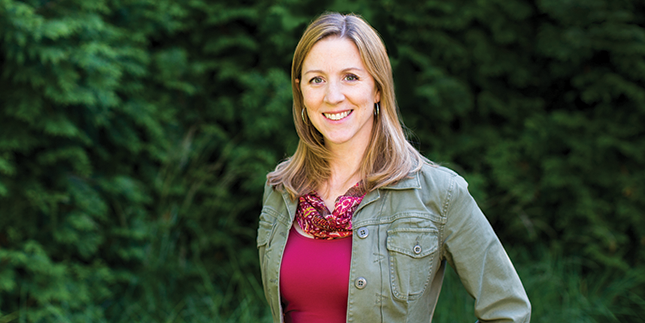
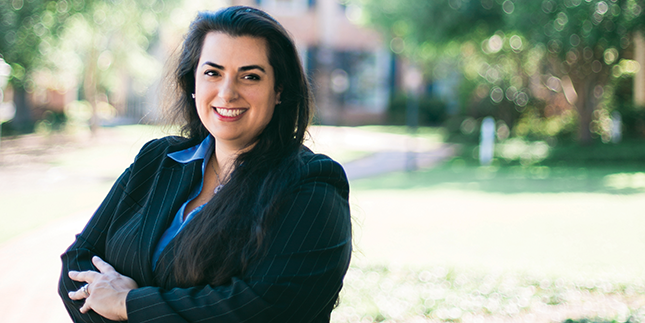
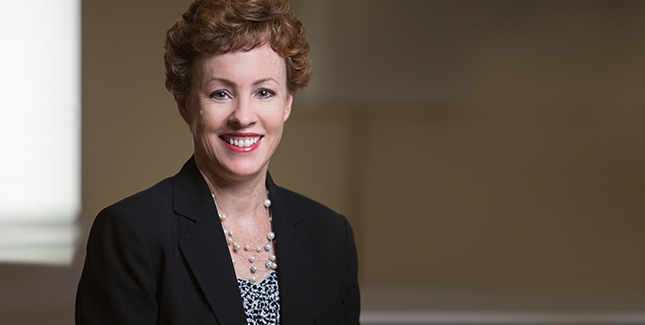
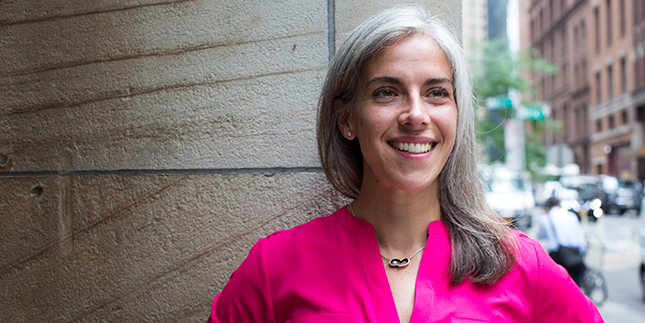
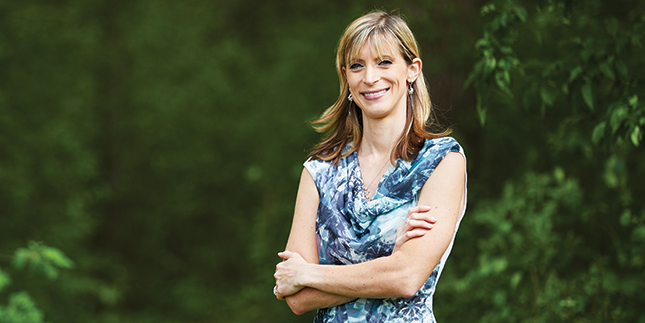





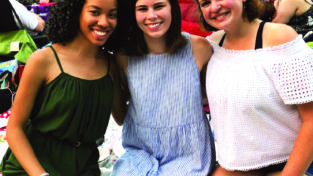
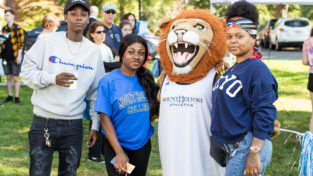

Leave a Reply